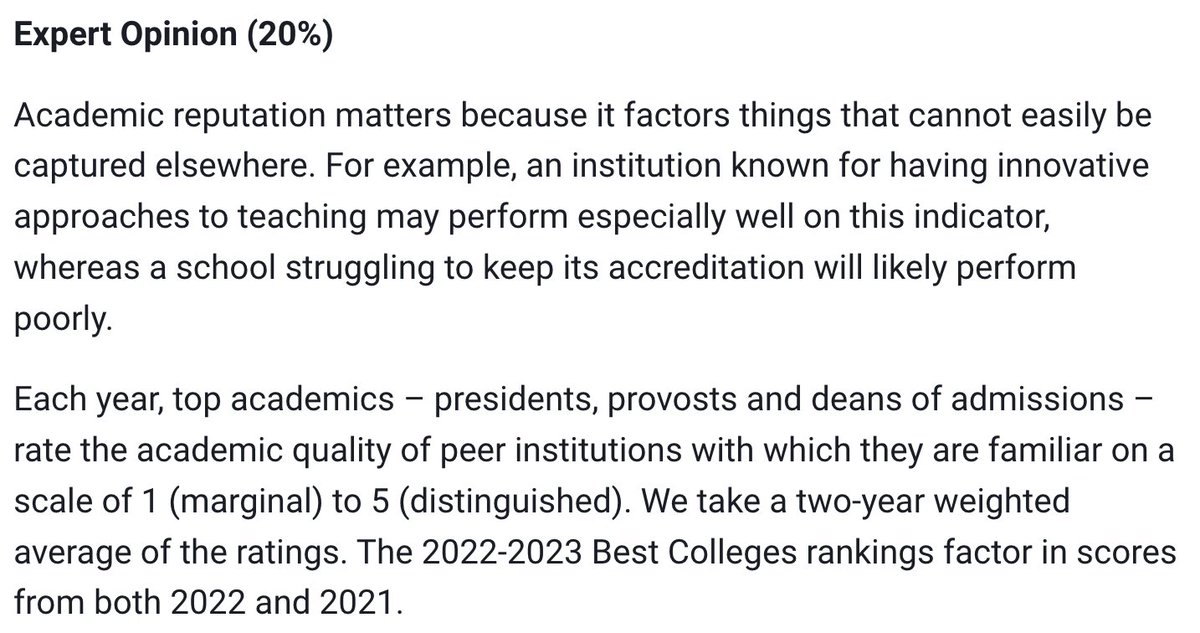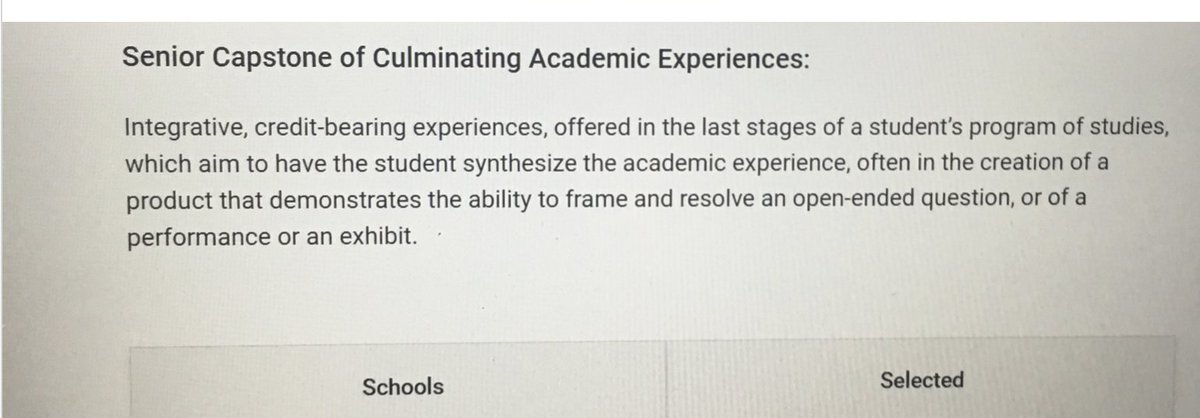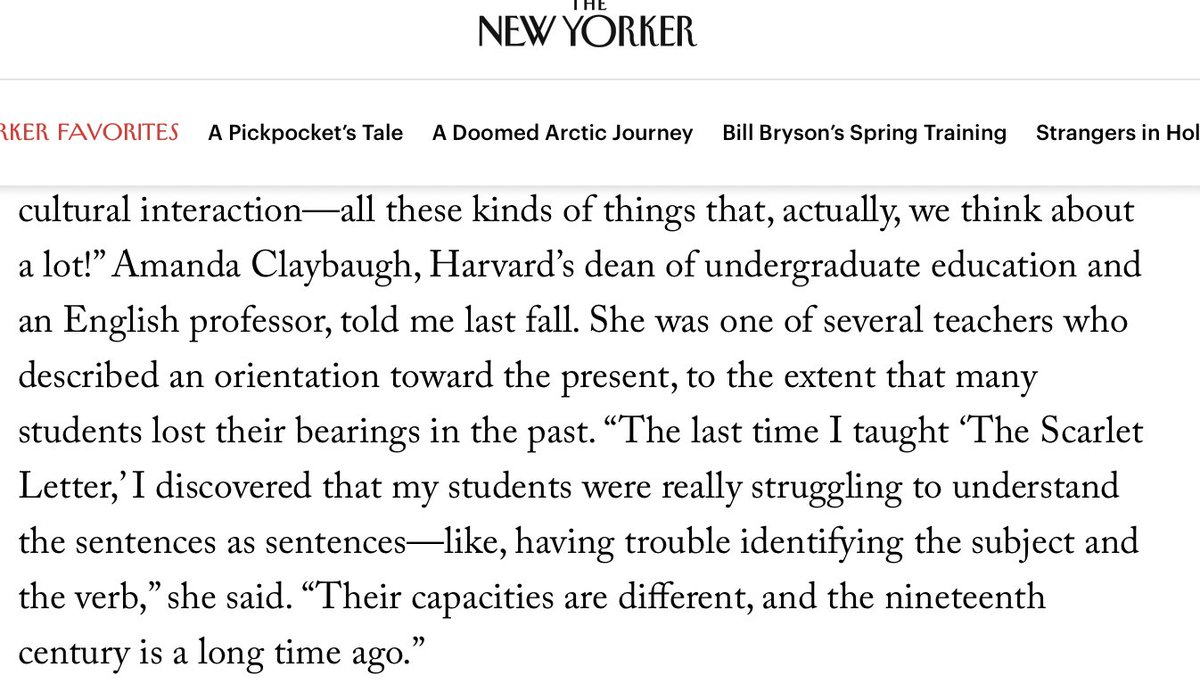
What's extraordinary about the @usnews Best Colleges reputation wurvey is that ANYONE FILLS IT OUT AT ALL.
Let's take a look 🧵
Let's take a look 🧵
https://twitter.com/jbeowulf/status/1633911097542451202
The most heavily weighted single factor in the Best Colleges rankings is Undergraduate Academic Reputation, which USN calls "Expert Opinion." 

Here's the thing: there is absolutely no way the presidents, provosts, and deans of admissions they send the survey to can be qualified to answer the questions, let alone claim expertise. 

This following screenshots are from a survey shared with me a few years ago. The dean of admissions was being asked to review **443** universities and rank them from 1 to 5.
Guess what he decided to do?
🚮

Guess what he decided to do?
🚮


But wait, there's more.
USN doesn't ask deans, provosts, and presidents just to rank universities and colleges they have not attended, not worked at, and quite possibly never even seen in person.
They want them to go deep.
USN doesn't ask deans, provosts, and presidents just to rank universities and colleges they have not attended, not worked at, and quite possibly never even seen in person.
They want them to go deep.
They ask people to nominate up to 15 universities that are, for instance, the most innovative or the most dedicated to teaching undergrads.
How does a president, provost, or dean know about any institution's dedication to teaching other than their own?

How does a president, provost, or dean know about any institution's dedication to teaching other than their own?


It gets worse.
Hey admissions dean, can you tell us about the First Year Experience at up to 15 colleges you don't work at?
Hey admissions dean, can you tell us about the First Year Experience at up to 15 colleges you don't work at?

Dear provost,
Please tell us about the undergraduate research and Senior Capstone at up to 15 colleges where you do not work.

Please tell us about the undergraduate research and Senior Capstone at up to 15 colleges where you do not work.


Hello University President,
Please tell us about the internship & study abroad programs at colleges where you don't work. Bonus points if you can explain the basis of rating programs that neither you nor your employees have participated in.
🤪JK we don't care. Name some names!

Please tell us about the internship & study abroad programs at colleges where you don't work. Bonus points if you can explain the basis of rating programs that neither you nor your employees have participated in.
🤪JK we don't care. Name some names!


I suppose it's possible for specialists in, say, study abroad programs to have enough knowledge about programs at other colleges to provide annual feedback to the president on their area of expertise, along with dozens of other people across the institution.
The amazing thing about this ridiculous, bordering on dishonest exercise is not that 4 colleges have now opted out of completing the reputation survey.
It's that any opt in.
It's that any opt in.

@usnews *survey #editbutton
• • •
Missing some Tweet in this thread? You can try to
force a refresh


















